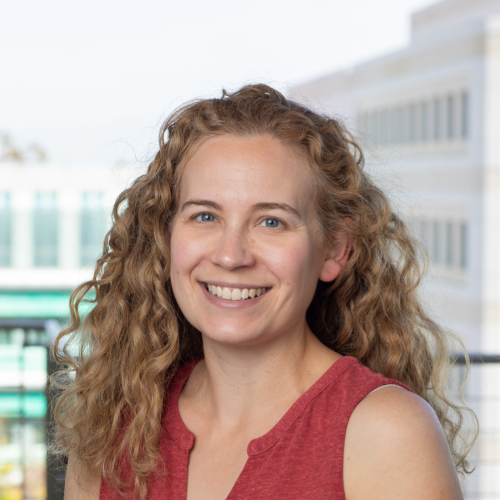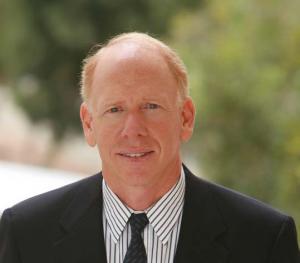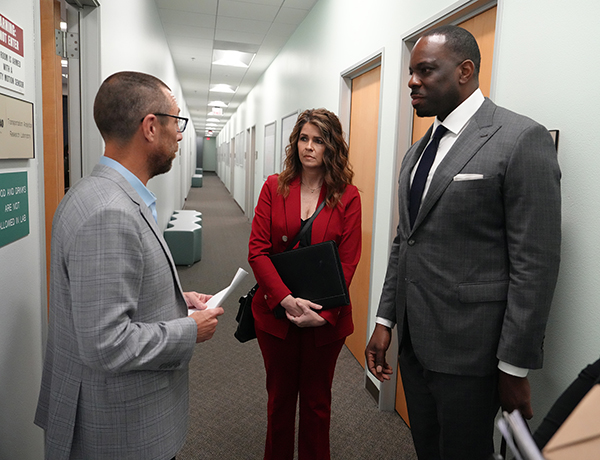
Navigation is a central part of daily life. For some, getting around is easy, while others struggle. Some clinical populations, such as those with Alzheimer’s Disease, display wandering behaviors and extensive disorientation. Working at the interface between immersive virtual reality and neuroimaging techniques, my research uses these complementary approaches to inform questions about how we acquire and use spatial knowledge. In this talk, I will discuss both some of my recent work and current experiments that center on three main themes: 1) how we learn new environments, 2) how the brain tracks spatial information, and 3) how individuals differ in their spatial abilities. The studies presented in this talk inform new frameworks for understanding spatial knowledge, leading to novel approaches to answering the next major questions in navigation, learning, and memory.
Dr. Elizabeth Chrastil is an Associate Professor in the Department of Neurobiology & Behavior at UC Irvine, with an appointment in the Department of Cognitive Sciences, and is a fellow of the Center for the Neurobiology of Learning & Memory. She was awarded the Early Career Award from the Psychonomic Society in 2023. Dr. Chrastil received her PhD from Brown University and did her postdoctoral work at Boston University. She also received an MS in biology from Tufts University and a BA from Washington University in St. Louis.

High school students in the US generate a lot of travel, but their travel behavior has not been widely studied. We have administered a survey to high school students in Los Angeles to measure their travel behavior and examine their response to a new program (called GoPass) that provides free transit trips to any K-14 student in the Los Angeles metropolitan area. We examine students’ choice to sign up and use GoPass. Our survey includes a Stated Preference experiment to measure students’ value of time and their demand for new services such as robotaxis. This talk provides preliminary results from the survey and transportation choice models.
David Brownstone is an emeritus Professor of Economics at UCI. He has studied the impacts of tax reform on housing demand, the impacts of measurement errors in economic surveys, the impacts of carpool lanes and road pricing, the impacts of urban form on household vehicle choice and utilization, the demand for alternative-fueled vehicles, the economic impact of California’s rail system, and the demand for public transportation. In addition to his applied work, Brownstone was one of the first econometricians to apply bootstrapping and multiple imputations to generate valid inferences in complex models. Together with Kenneth Train and David Bunch he was one of the first to apply mixed logit models in household vehicle demand and transportation mode choice models. Brownstone currently serves on the editorial boards of Transportation Research (Part B: Methodological), Economics of Transportation, and The Journal of Choice Modeling.

The planning of linear transportation infrastructures, which for decades has followed the geometric design premises of highways and railways mainly in greenfield projects, currently faces significant challenges. These challenges include the need for a strong inclusion of socio-environmental perspectives, as well as a continuous analysis of the logistical and economic feasibility of the project considering the existence of an already operating transportation system. In this sense, this presentation will argue for the need to modernize transportation planning and promote ESG (Environmental, Social, and Governance) principles in current and future projects. Results of research projects on the topic will be presented, focusing on Transport Ecology, Geographic Modeling of Corridors of Technical, Economic, and Environmental Feasibility, geographical simulations of routes and micro-logistic basins based on changes in freight costs resulting from new highways and railways, and predictive models of impacts on landscapes and distant indigenous populations.
Dr. Rodrigo A. A. Nóbrega holds a degree in Cartographic Engineering from UNESP (1996), and a Master’s and PhD in Transportation Engineering specializing in Remote Sensing and GIS from the Polytechnic School of USP (2007) in Brazil. He completed his Postdoctoral studies at the Geosystems Research Institute – Mississippi State University (2010). With 28 years of experience in GIS, Dr. Nobrega’s research focuses on geographic intelligence for transportation planning. He is currently an Associate Professor at the Department of Cartography, Institute of Geosciences at Federal University of Minas Gerais (UFMG).

Now in its 9th year, the Transportation Colloquium at the University of California, Irvine (UCI) features presentations from leading scholars and practitioners in the fields of urban planning, public policy, engineering and transportation. Guests may attend virtually or in-person.

Motor vehicle crashes have remained the leading cause of death among adolescents for decades. Today, Riding with an Impaired Driver (RWI) and Driving While Impaired (DWI) among young drivers is prevalent. The presentation will describe recent theory-driven, multistage, mixed-methods investigation focused on the development of trajectories of RWI/DWI behaviors in adolescents and will provide early insights of trajectory influence on health, education, and employment among emerging adults.
Dr. Federico Vaca was recently recruited back to UCI from the Yale School of Medicine where he was Professor and Vice Chair in the Department of Emergency Medicine. During his tenure at Yale, he established the Yale Developmental Neurocognitive Driving Simulation Research Center (DrivSim Lab).Now here at UCI he is Professor and Executive Vice Chair in the Department of Emergency Medicine at the University of California Irvine’s School of Medicine – Department of Emergency Medicine. He is a board-certified emergency medicine physician and physician-scientist. He previously served as a Medical Fellow for the U.S. Department of Transportation’s National Highway Traffic Safety Administration (NHTSA) in Washington, D.C. Over the last 20 years, his research has focused on occupant safety, adolescent development and behaviors that influence the risk of motor vehicle crash injury as well as health disparities in alcohol use disorders, impaired driving, and crash-injury. His research has been funded by the NIH’s Eunice Kennedy Shriver National Institute of Child Health and Human Development (NICHD), NIH’s Office of Behavioral and Social Sciences Research (OBSSR), and the National Institute of Alcohol Abuse and Alcoholism (NIAAA).Dr. Vaca has chaired and served on several NIH scientific review committees, chaired national expert panels directed by the National Academies of Sciences, Medicine, and Engineering’s Transportation Research Board, and was previously appointed by the U.S. Secretary for Health and Human Services to serve on the Board of Scientific Counselors for the CDC’s National Center for Injury Prevention and Control.









